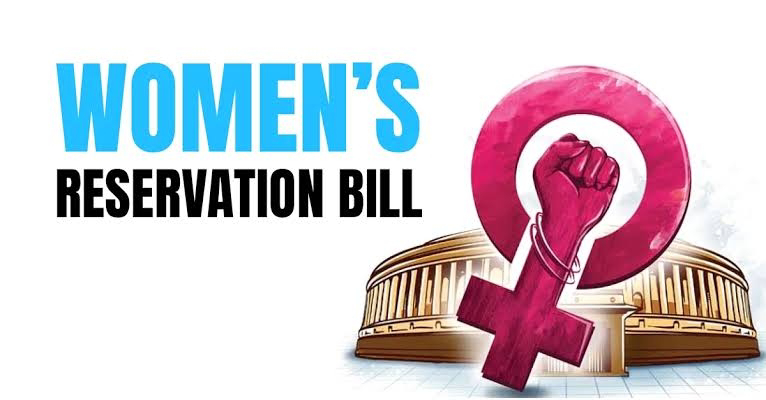A SEAT AT THE TABLE: WOMEN’S RESERVATION BILL
Author: Harsa Srinidhi M, a Student At Symbiosis Law School, Hyderabad
The Women's Reservation Bill of 2023 has taken centre stage as a significant step towards attaining gender parity in India's political scene. By reserving 33 per cent of Lok Sabha and state legislative assembly seats for women, this substantial legal change aims to improve the social standing of women. This measure, which just obtained a unanimous vote in the Lok Sabha and the Rajya Sabha, strives to amplify and elevate the voices of women in the highest levels of political authority.
Given that it was initially proposed in Parliament in the early 1990s, the Women's Reservation Bill has been on a long path. However, it encountered several challenges and delays throughout the years. After over three decades of discussions, debates, and contemplation, India has finally made a meaningful step towards closing the gender gap in politics.
One of the most important features of this bill is the allotment of one-third of the seats in the Lok Sabha and State Assemblies reserved for members of Scheduled Castes (SCs) and Scheduled Tribes (STs). In order to ensure that various constituencies benefit from increased female participation, this reservation will function on a rotational basis. The purpose of this action is to address the persistent lack of representation of women in Indian politics and give them the opportunity they deserve.
A significant step towards achieving gender equality is the Women's Reservation Bill of 2023. It aims to provide women with 33 per cent of the seats in the Lok Sabha, which is directly elected, and in state legislative assemblies. This not only increases the visibility of women in politics but also gives them the chance to influence decisions and policies that have an impact on the entire country.
The measure has long-term effects in addition to the immediate advantages of increased representation. It legally establishes women's representation in parliament, assuring the long-lasting viability of this advancement for future generations. This action goes beyond reserving seats to promote inclusion and equality in the country's highest legislative bodies.
While the passage of the bill is undeniably momentous, obstacles remain on the path to gender equality in Indian politics. It is critical to ensure that women in these reserved seats are given the chance and support to make a real difference. It is also critical to address bigger concerns, such as political violence against women and societal barriers that prevent women from entering politics.
The Women's Reservation Bill of 2023 marks a milestone event in India's quest for gender equality. It is a big step forward in empowering women to engage in the nation's political discourse actively. With constitutional implementation, this measure assures that women will continue to have a seat at the table for many years to come. As India commemorates this historic milestone, it is critical to remember that the journey towards real gender equality is still underway. The Women's Reservation Bill is a significant step, but it is not the final destination. It is a call to action, a reminder that gender should never be an impediment to participation and that every voice, regardless of gender, deserves to be heard and respected in the democratic process.




![Freedom of Speech in India [Indian Supreme court and Law of Sedition]](https://blogger.googleusercontent.com/img/a/AVvXsEiGLLUmLKq5Da6xDZplasOZHKRj-jOhWPkoeuy0_Eq757tUpOiHz-xooXwIlAjF0-hmBfi-TtMIv6on_sVgBXVq4wbWwnbsqLOcNX22S8C2aSq-ZuK3vn9wWAx8tXByYOBfwc0hs6b8RJV84YNFG2greouGKjup6g8kN-xVlchW33VHdSSmrhLC1BUEVbGp=w680)





